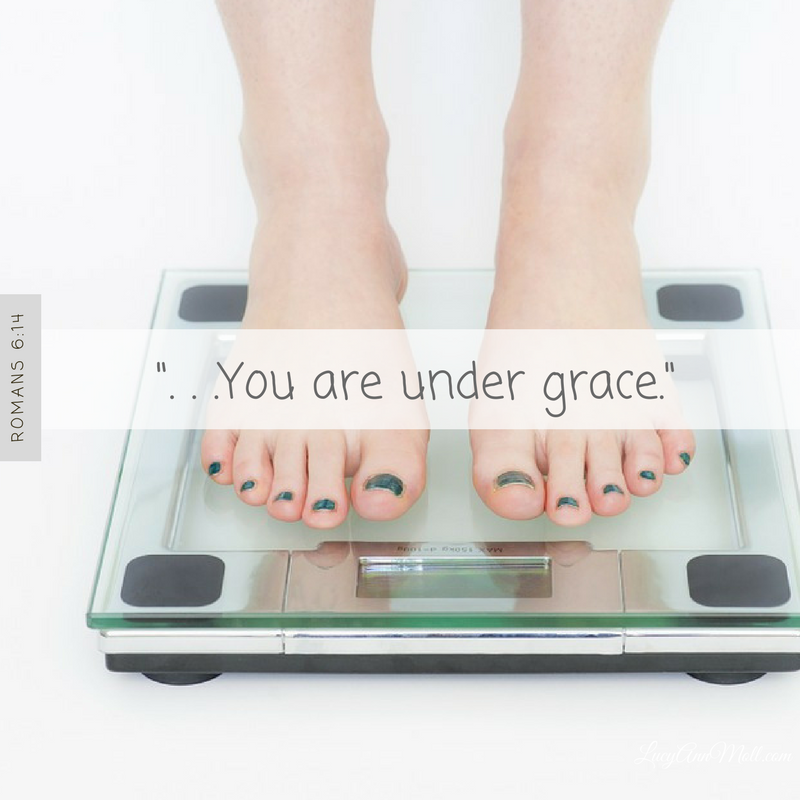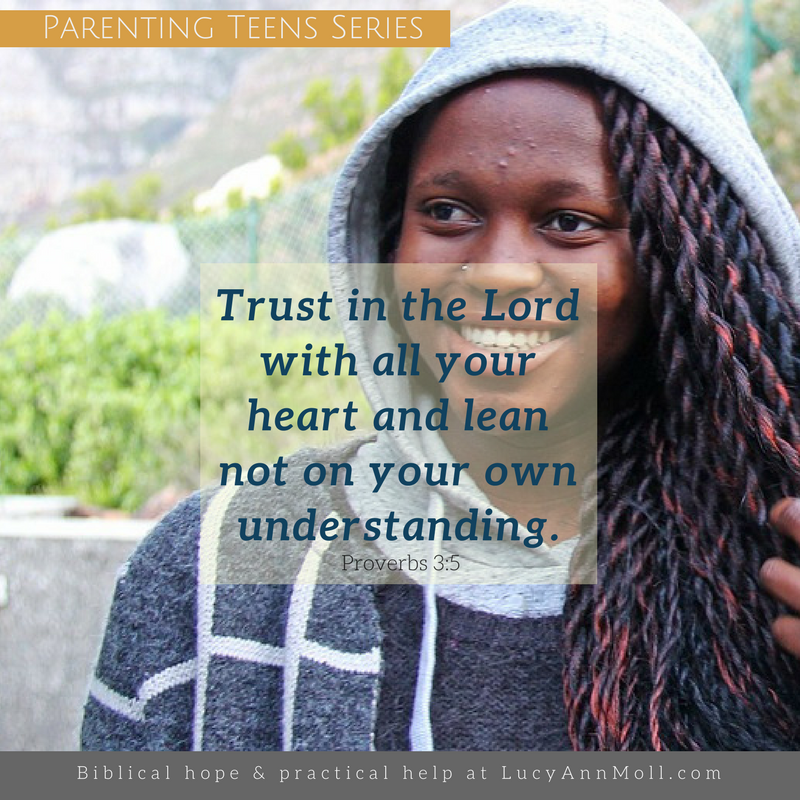
by Lucy | May 10, 2018 | emotions, relationships, whole health wellness |
Got FATIGUE? Anxiety zaps your energy, messes with your mind and body, leading to fatigue, doesn’t it?
Among the reasons for increasing anxiety today are money worries, poor health, and uncertain times–culturally and politically.. What are other energy drainers you see in the world? In your life? But God knows what you face and is with you. In fact, he desires that you find your security in his strength.
He gives strength to the weary
and increases the power of the weak. Isaiah 40:29, NIV
So snap up these energy-boosting, fatigue fighters from the Bible. Cool?
Come to Jesus
While many of us sleep less than six hours a night according to this study, there’s a better rest when stressed.
Jesus said,
“Come to me, all you who are weary and burdened, and I will give you rest.” Matthew 11:28, ESV
Click & Tweet!
Coming to Jesus is an invitation to trust Jesus personally, not merely believe historical facts about him. At Biblical Counseling Center, we counselors share this biblical truth: Faith is believing the Word of God and acting upon it, no matter how you feel, knowing God promises a good result.
Faith in Jesus leads to the best rest and more energy. Have you tried to pray at bedtime? How has prayer deepened your sleep?
Choose New Thoughts
By the power of the Holy Spirit, you can change the way you think so your thinking lines up with biblical truth. When you have God’s perspective on your troubles, you’ll sense joy and this joy gives way to energy.
When self-centered, you and I may ruminate over what should have been done yesterday or last week, or tomorrow and we feel jittery. Hurrying drains energy and may lead to negative thinking. Here’s a popular resource for transforming your thoughts.
Do you know that when you think well, you feel well and you act well?
It’s true. What you think influences how you think and, in turn, how you feel emotionally and physically AND, in turn, how you act.
Click & Tweet!
For as he thinks in his heart, so is he. Proverbs 23:7, NKJV
From your heart (your inner person) flows your words and behavior.
Above all else, guard your heart, for everything you do flows from it. Proverbs 4:23, NIV

Care for Your Body
God created our bodies and we are meant to love and serve him and our neighbor through the strength he provides and the intelligence and creativity he gives us. The Fit for Life ebook helps you not only lose weight but also reduce get fit spiritually and emotionally.
Here are 5 more tips to boost energy through awesome, fatigue-fighting sleep.
1. Get up and go to bed at the same time every day, even on weekends.
2. Keep your bedroom is quiet, dark, cool, and comfortable.
3. Use your bedroom for sleeping and for sex with your spouse, but not for watching television or doing work.
4. Do not regularly take naps unless you are ill or a new mom short on sleep.
5. Exercise nearly every day, but avoid getting sweaty 4 hours of bedtime. Walking is a great option.
Says biblical counselor and author Wayne Mack,
Recognize the fact that an occasional night when you have difficulty sleeping or getting asleep or staying asleep is quite common and will not seriously harm you unless you let it. Don’t focus on or worry about not getting to sleep. Remember also that on rare occasions God may withhold sleep because he wants you to spend extra time in prayer or meditation.
So no worry, friends. Rather, rest in Jesus, change your thoughts, and take care of your body. Need biblical hope and practical help? Please contact me and I can answer your questions or we can set up a complimentary 15-minute phone consult. Just ask.
Counseling Hearts to Hope,


by Lucy | Mar 29, 2018 | biblical counseling, Counselor Resources, whole health wellness
Self-care for the counselor: Yes, it’s true. . .you cannot run on coffee alone! So what do counselors really need? Biblical counselor Eliza Jane Huie shares important stuff here, helping you help others. Her article appeared first here at The Biblical Counseling Coalition website and is used with permission. Eliza is also listed on the Heart2Heart Counselor Directory. Check it out.

Counselors give significant amount of their time and energy to their calling. At its very core, biblical counseling is a call to be an ambassador of reconciliation by walking with distraught people through trials and suffering and holding out gospel hope to them. Furthermore, it is a challenging calling.
If you are a doing any type of counseling, formal or informal, you need to be very intentional to also take care of yourself.
Click & Tweet!
This is an area that can be easily missed. One simple reason for that is because self-care is something not often talked about among biblical counselors. In seeking to lay down their lives for others, they can be less attentive to their own needs.
Philippians 2:4 says,
Let each of you look not only to his own interests, but also to the interests of others.
Don’t miss the “not only” part of that passage. Looking to your own interests appropriately can actually position you to serve better. Here are a few questions you can ask to determine if you need to heighten your focus on caring for yourself as you serve others.
Do You Listen to Your Body?
Your body sends you signals when it needs something. It is important to listen to what your body is telling you. Basic essentials like food and sleep can be the first areas that are unknowingly sacrificed when caring for others. Guard against pushing your bedtime later and later. By God’s design, we need rest and when this is missing, it will affect your ability to serve well. Healthy eating goes along with your need for rest. Despite many people’s experience, you cannot run on coffee alone.
Click & Tweet!
Poor eating habits will catch up to you.
Lack of exercise is another way you can ignore listening to your body. It can be much easier to miss the messages your body is telling you in this area. Counselors spend a good amount of time sitting down and listening to people. Your mind and heart are active, but your cardiovascular system and muscles are not. The aches and pains you may be feeling might just be your body telling you it needs care. Hearing difficult stories can build up stress in your body, and exercise can be a helpful way alleviate stress in yourself.
Does Your Schedule Reflect Your Priorities?
Undoubtedly, there are other things you really enjoy doing besides counseling. However, if you find your hobbies and interests have no place in your schedule, it is probably time to take a look at why that is. There will always be a crisis or need when you are a counselor. A call to care for others as a counselor does not mean you lose yourself.
Click & Tweet!
God has given you other talents and interests. There is purpose in these gifts and interests as well, so don’t ignore them.
Do you have time alone? Even the most extroverted person needs time alone—time to be with the Lord and to recharge should be a guarded priority in your schedule. Because counseling fully engages you with people, being alone can help you create “space” to reflect on your own life with the Lord. If Jesus took time to find a quiet place of solitude, then we should consider how much we need to do the same. Not only does this create a space for being refreshed, but it also expresses a trust in God to care for others while you care for yourself.
Are You Less Patient or Empathetic?
Being prone to impatience is certainly a disconcerting character trait for believers, but if you find yourself less patient with the people you are caring for, then it is something that must be addressed. Lack of empathy is also cause for concern. Both of these problems can come from traversing in the dark places of people’s lives. Walking with people in crisis and pain will have an effect on you. Counselors need to be aware of signs that they too need care. If you find that you care less, it is a good time to care more for yourself. Be sure you are not neglecting those things that help you to serve well.
Conclusion: Self-care Is Not Selfish
These are just a few areas to get you thinking about whether or not you are doing well in caring for yourself as you care for others. The ministry of counseling has a deep impact on your own mind, body, and soul. Counselors need to rest assured that self-care is not selfish; it is a means to guard their own wellbeing. In turn it blesses those to whom you are ministering. You will serve better when you care for yourself.
Join the Conversation
What are other signs pointing to a need for self-care should counselors be aware of in their lives? How can counselors get better at disciplining themselves for self-care?
 About Eliza Jane Huie
About Eliza Jane Huie
Eliza Huie is an experienced biblical counselor and serves as Director of Counseling at Life Counseling Center in Marriottsville, Maryland. She seeks to bring gospel hope to those hurting or seeking change.
Counselor, would you like to join Heart2Heart Counselor Directory too? Choose a free listing (or an upgrade). Make connections with like-minded counselors and new counselees. Learn more.
Counseling Hearts to Hope.

by Lucy | Oct 3, 2017 | biblical counseling, biblical counseling, whole health wellness |
 DIETING: Millions of women are on a diet now. Is dieting wrong in God’s eyes? Is it (gulp) a sin?
DIETING: Millions of women are on a diet now. Is dieting wrong in God’s eyes? Is it (gulp) a sin?
Diets. Gotta love them, gotta hate them.
We women love them because losing weight helps us look better and feel energetic. We hate them because we may feel deprived, grouchy, and fearful that we’ll gain back the pounds we worked hard to lose.
I have a crazy Weight Watchers story. It begins what I was age 10. You can read part of my crazy story here in the intro of my eBook, Fit for Life.
Back to the BIG question:
So Is Dieting Sinful?
The quick answer: no. In itself dieting isn’t bad. In fact, caring for yourself by eating right is good. But dieting can turn bad. It depends on your attitude. What’s your attitude regarding food and self image? Do you hate how your jeans fit? Do you call yourself awful names if you go off your diet?
If you fear that eating certain favorite treats like ice cream, chips or cookies will prompt you to binge or if you believe that eating your favorite treat is “wrong” (even if the Bible doesn’t teach that it is), then you must not eat it, says Elyse Fitzpatrick, a leading biblical counselor and author of several books including Love to Eat, Hate to Eat.
The bible says that if you compromise your conscience, you sin.
He who doubts is condemned if he eats, because his eating is not from faith; and whatever is not from faith is sin. (Romans 14:23)
This passage primarily speaks to food offered to idols (which was a problem when the apostle Paul wrote this epistle), yet the biblical principle holds true: anything that compromises your faith is sin, including faithless eating.
The upshot: If you believe dieting or cheating on your diet is a sin, then it is sin for you. If not, then feel free to choose a weight-loss plan.
Listen to Paul’s words on sin and grace.
For sin shall no longer be your master, because you are not under the law, but under grace. (Romans 6:14)
If you choose to lose weight by dieting, select one focused on lifestyle changes and teaches healthy habits to keep you Fit for Life.
What About Gluttony?
 Derived from the Latin gluttire meaning to gulp down or swallow, “gluttony” means over-indulgence of food or drink to the point of extravagance or waste, gluttony has a spot on the infamous list of the seven deadly sins. While I’ve never heard a sermon on gluttony, the Bible speaks against it. (Check out Proverbs 23:20,21.)
Derived from the Latin gluttire meaning to gulp down or swallow, “gluttony” means over-indulgence of food or drink to the point of extravagance or waste, gluttony has a spot on the infamous list of the seven deadly sins. While I’ve never heard a sermon on gluttony, the Bible speaks against it. (Check out Proverbs 23:20,21.)
In a strange twist, under-indulgence of food is also gluttonous because it is an extreme use of food. For some, the problem is anorexia nervosa, which troubled a food disordered counselee, who eventually found healing as she determined to put God first and to bring glory to him in everything she did. We also kept in regular contact with her medical doctor and nutritionist.
She learned to enjoy eating food, a gift of God. Indeed. Paul declared,
For everything God created is good, and nothing is to be rejected if it is received with thanksgiving, because it is consecrated by the word of God and prayer. (1 Timothy 4:4,5)
4 Quick Self-Care Food Tips
1. Cut out or reduce sugary drinks like soda. (When my husband corked the a while back, he lost 15 pounds in three months and feels more energetic, especially in the afternoon.)
2. Drink a glass of water before a meal or when you feel hungry between meals. Drinking water makes you feel fuller, helping you to reduce portions easily. Hycration also helps you think better.
3. Eat colorfully. Have lots of veggies and fruit on hand, washed and ready to eat. You’re less likely to crunch a cookie when you’ve set out baby carrots, snap peas, bananas, and apples.
4. Decide NOT to diet. A diet is an eating plan you go on and off, typically regaining the weight you lost. Instead, listen to advice from MayoClinic.com:
Combining a healthier diet and more activity is the best way to lose weight and keep it off for the long term. Take your weight loss and weight maintenance one day at a time and surround yourself with supportive resources to help ensure your success.
This is exactly the approach of my ebook Fit for Life, with a strong biblical emphasis. God created you to shine.
“Whether, then, you eat or drink or whatever you do, do all to the glory of God.” 1 Corinthians 10:31
Counseling hope to your precious heart,

by Lucy | Apr 27, 2017 | biblical counseling, emotions, relationships
 TEENS: Parenting teens means trusting God and showing them you care.
Click & Tweet!
These tips from Leia Joseph — a crisis counselor, high school music teacher, and mother — appeared first here on The Biblical Counseling Coalition website and is used with permission. This is part three of a 3-part series on parenting teens.–LAM
TEENS: Parenting teens means trusting God and showing them you care.
Click & Tweet!
These tips from Leia Joseph — a crisis counselor, high school music teacher, and mother — appeared first here on The Biblical Counseling Coalition website and is used with permission. This is part three of a 3-part series on parenting teens.–LAM

I have had the privilege of spending the last 13 years working as a music teacher and crisis counselor for teens. The following six tips represent a handful of lessons I have learned along the way. If you are the parent of a teenager or pre-teen, I pray that you find this helpful.
Here are part 1 and part 2 in this parenting teens series.
5. Drop Everything to Show You Care
But care about other things too.
There is nothing like the knowledge that someone will be there for you no matter what. The simple understanding that a parent will walk out of an important meeting at work or cancel a night out with friends because his or her child is in need insurmountably communicates love and provides security to that child.
However, your teen is growing more and more independent. Teens know when they are your whole world. They can tell if there is nothing else fueling excitement, creativity, and purpose in your life apart from them. This brings its own set of pressures and vices.
Practical Help
Explore the passions God has given you. Take care of your own well-being. Seek the Lord about whom you can serve and minister. Always be willing to put these things aside for your own child.
6. Trust God’s Plans
God’s plans ultimately outshine your dreams.
 I have only just begun the parenting journey and already know the gut-wrenching reality that my son’s pain is my pain tenfold. You love your children more than anything in the world. You would even give your life in order for them to live if necessary.
I have only just begun the parenting journey and already know the gut-wrenching reality that my son’s pain is my pain tenfold. You love your children more than anything in the world. You would even give your life in order for them to live if necessary.
Still, good parents don’t equal good kids. Despite all that you pour into your teens with love, prayer, and opportunity, they may still push it all away. Even still, persevere in loving, praying, and trusting that God loves your teens even more than you do.
As my pastor, Mark Dever, often says, “Where there is life, there is hope.”
They may graduate from high school and find themselves entrenched in sin, but their story isn’t over yet. Be faithful by loving and caring for them today. And trust that the Lord will ultimately write a better story for your child than you could ever imagine.
Sharing Hope with Your Heart,


by Lucy | Feb 16, 2017 | biblical counseling, emotions, thoughts, whole health wellness
SELF-CARE: As you follow in step with Christ and make godly habits that come from a changed heart, you’ll also experience joy.
In case you missed them, here are part one and part two in this series. So far, we’ve looked at the role of the heart in true self-care (part 1) and the first three steps in whole health wellness: recognizing emotions, choosing godly thoughts, and acting on renewed beliefs (part 2).
In the final part of this self-care series, let’s consider:
- Making new godly habits and sticking with them.
- Experiencing the joy-filled life.
Making New Habits
Acting on my renewed beliefs a time or two isn’t enough to make a genuine difference in my thoughts, emotions, and actions. We need a fourth step: making new habits that stick.
I used to eat super healthy foods and was a vegetarian for 14 or so years, and exercised regularly too. In recent years, however, I believed the lie I was too busy for regular meals, exercise, and rest.
God helps you and me break ungodly habits
Click & Tweet!
, including things like critical speech, self-pity, worry, smoking, chewing fingernails, people-pleasing, pornography, and more. In my case, the bad habit of neglecting self-care came from a heart of pride.
Sinful habits are not disorders or defects. Jesus Christ gives us victory over sin. You and I no longer have to live in slavery to sinful thoughts, attitudes, beliefs, and motivation. God himself provides the way out.
No temptation has overtaken you that is not common to man. God is faithful, and he will not let you be tempted beyond your ability, but with the temptation he will also provide the way of escape, that you may be able to endure it. 1 Corinthians 10:13
Putting off pride, renewing my attitude, and putting on humility: This is my new thought habit.
New Habit Plan, Detailed
To successfully change a habit, we need a plan. The more detailed, the better.
Click & Tweet!
First you’ll see an overview below. Then I’ll share a detailed plan a counselee and I wrote together.
- Put off: Identify the ungodly habit that needs change. For me, I was irresponsible with diet, exercise, and sleep. For a counselee I meet by Skype, she is quick to argue with her mother.
- Renew my attitude: Me — I agreed with God that I was sinning by erroneously thinking that I was too busy for self-care, as if God didn’t stuff enough hours in a day. My counselee agreed with God to honor her mother and to choose Christ righteousness over self-righteousness..
- Put on: Me — humility. I am not Super Woman! I need good food, exercise, and rest…just like Jesus when he walked this earth. My counselee also needed humility as well as determination to speak the truth in love.
The Plan
Together my counselee and I wrote a plan for her that looked like this:
- When mother says something mean, quietly thank God for an opportunity to practice the new habit.
- Remind myself of James 1:19, which says, “… Everyone should be quick to listen, slow to speak and slow to become angry” and that I need to change my attitude, desiring most of all to honor God.
- Then speak the truth in love. Depending on what mother says, I may say, “I feel hurt when you suggest I’ve put on ten pounds and am lazy. You know I am an honor student and my clothes fit as they always do. I want you to know that I’m making a new habit to speak the truth in love. This is what the Bible tells me to do.”
- Proactively and regulary choose words that build up, saying something like, “Mom, I love you” or “Great to see you!” or “Just want you to know I appreciate that you want the best for me” or a simple “Thank you,” always with a loving tone of voice and friendly body language.
When making a new habit pattern, we need to repeat it many times for it to take hold.
Click & Tweet!
In counseling others, I’ve discovered that this step of forming new godly pattern is challenging and part of the reason why we need our brothers and sisters in Christ to come alongside us and encourage us.
What bad habit does God want you to replace with a godly habit? What obstacles are in the way? How might other Christians helped you?
Receiving Joy in the Journey
What I learned in this self-care journey may sound kind of crazy. It’s counterintuitive. My avoidance of true self-care fed my sinful appetite to live self-sufficiently and was, in fact, self-indulgent. Does this make sense?
For me, counseling my heart has meant stopping to rest and eat well and exercise.
I thank God that my poor self care didn’t create a health crisis. Rather, fear crept in and settled in my heart and mind. This is equally bad, this unsettling. Yet it has resulted in my obeying God’s call for heart change, which is always good. He knows what you and I truly need.
Quick Review
A quick review of the biblical counseling journey:
1. Recognizing your difficult emotions.
2. Identifying your faulty thinking.
3. Acting on renewed beliefs.
4. Making new habits.
As I continue my journey, how may I pray for you? All of us need God’s help, and he’s faithful. How we handle our everyday problems reveals our hearts: our desires, our motivations, our beliefs, and our thinking.
When God shows us that our hearts are self-centered, he gives us everything we need to live life according to his plan
Click & Tweet!
, which is what any true Christian really wants, right?
His divine power has granted to us all things that pertain to life and godliness, through the knowledge of him who called us to his own glory and excellence, by which he has granted to us his precious and very great promises, so that through them you may become partakers of the divine nature, having escaped from the corruption that is in the world because of sinful desire. 1 Peter 1:2-4, ESV
Sharing Hope with Your Heart,






 About Eliza Jane Huie
About Eliza Jane Huie DIETING: Millions of women are on a diet now. Is dieting wrong in God’s eyes? Is it (gulp) a sin?
DIETING: Millions of women are on a diet now. Is dieting wrong in God’s eyes? Is it (gulp) a sin? TEENS:
TEENS: 
 I have only just begun the parenting journey and already know the gut-wrenching reality that my son’s pain is my pain tenfold. You love your children more than anything in the world. You would even give your life in order for them to live if necessary.
I have only just begun the parenting journey and already know the gut-wrenching reality that my son’s pain is my pain tenfold. You love your children more than anything in the world. You would even give your life in order for them to live if necessary.

